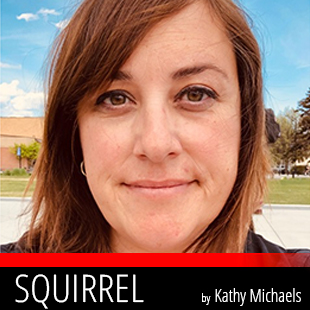
Image Credit: SUBMITTED
July 18, 2019 - 1:30 PM
OPINION
Tolerance has never been my bag.
Noisy eaters? Off with their heads.
Drivers of jacked-up white trucks who fail to acknowledge any other car on the road? Roll out the troops.
Don’t even ask about the idiots who float their stinky, gas-guzzling boats up to the swimming area of local beaches to blast country music.
There is no excuse for this sorry lot.
There are plenty of reasons to complain.
And it’s human nature to rail against the failings of others that we'll — fingers crossed — never meet. Better yet there are plenty of chat groups for just about every complainer out there.
Tolerance for intolerance can only go so far, though, and some of the conversations being had on local community web pages are pushing the envelope of acceptability and we should all confront it as effectively as Rutland dealt with the perceived threat to their neighbourhood.
It’s completely understandable that Rutland residents fought against something they feared could change the fabric of their community — especially given that much of the talk aimed at addressing their concerns was vague, condescending and insubstantial.
But when the conversations stray into the territory of who deserves to be cared for, things have gone too far.
When we look at men and women struggling with mental health and drug issues, and reduce them to nothing more than wasted lives, it’s not just intolerance. It’s peak human failure.
People suffering from problems so significant that they are living a street life can be and often are, frightening. Their behaviour is erratic, their social interactions are often unrelatable.
There are reasons why they find refuge on the street, not within the homes of people who love them. These are not easy people to love.
What they find once they fall that far, however, is something we as a community should muster our best efforts to address because we all want to live in a decent society where people are safe, even the ones who don't look or act like we do. It strikes me as strange that all people haven't reached this conclusion, especially in light of the local news cycle.
Elijah Beauregard was just 16 years old. He was living on the streets for circumstances I can’t comprehend, and hope to never have to. His loved ones say that he was a bright light, drug free and enjoying his new street-based peer group.
Then he was stabbed in the arm and died from complications.
Nobody denies that this is a heartbreaking story of a boy whose life was cut short far too early.
But how would the least tolerant members of the community view Eli 10 to 20 years down the road?
Would the passage of time make his survival less relevant?
Supportive housing is the tangible effort being made to address the hardship of many others who walked a similar path to Eli.
Some of the people finding refuge in these projects made bad decisions that led to worse ones, more have mental health issues, others have faced a life of abuse and some simply trusted that their local physician wasn’t a drug pusher and were woefully mistaken. Then there are others, who are simply, as police have said in the past, predators who are turning a buck on the misfortune of others.
Supportive housing, it seems, would go some distance toward breaking the link between the vulnerable and this latter type of human.
A woman on a local Facebook page pointed that out recently, and her story should be thought about more closely.
She had a sister who was a drug addict. While this woman was living on the street, she was repeatedly raped and abused.
She found supportive housing and she didn’t stop using drugs. But she was able to separate herself from the onslaught of abuse.
In time, she found her way out of drug culture, though whether it was due to the housing remains to be seen. But it likely helped and at some point she went on to counsel others who faced similar struggles. When she died, she was at peace, having found a way to deal with her demons.
People like the woman in that story, or like Eli, are the reason behind these efforts. And quite simply, we all know someone who may one day need to be viewed through a more compassionate lens than being afforded to many of the people being helped.
Those who are working toward a safer community, need to keep on keeping on. There has to be a way for all of us to co-exist and live as healthy a life as we can lead.
Some honest conversations about what that looks like should be had before another housing project gets planted in a residential neighbourhood. It probably will require more education, security and services to gird against worst-case scenarios.
Those who think they should be able to spread hateful rhetoric in the name of community, that’s a different story altogether. They also need to have some honest conversations about where they belong in society, let alone this city.
None of us should have tolerance for that.
We welcome your comments and opinions on our stories but play nice. We won't censor or delete comments unless they contain off-topic statements or links, unnecessary vulgarity, false facts, spam or obviously fake profiles. If you have any concerns about what you see in comments, email the editor.
News from © iNFOnews, 2019